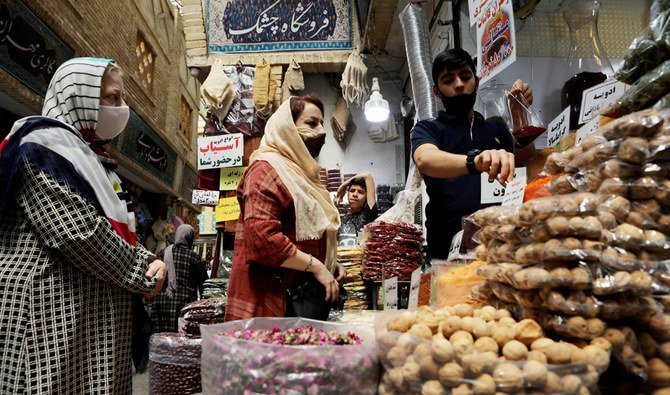
- ARAB NEWS
- 19 Apr 2024

LONDON: Iran, creaking under the impact of US sanctions, a collapse in oil sales and a severe COVID-19 epidemic, is scrambling to buy food and medicine to avoid a supply crunch.
Despite such supplies being exempt from sanctions, banks and governments are reluctant to transfer or take Iranian money because they fear unwittingly breaching the complex US restrictions, according to sources.
An approved trade channel launched by the Swiss government, and backed by Washington — the Swiss Humanitarian Trade Agreement (SHTA) — went live in February after over a year of work to facilitate such Iranian purchases from Swiss companies.
Yet Iran’s central bank (CBI) has been unable to transfer the billions of dollars worth of oil export cash it had built up between 2016 and 2018 to bank accounts working with the SHTA, the sources said.
That money was accumulated in bank accounts in countries that Iran sold oil to, especially in Asia, with its biggest customers including South Korea and Japan, in the years after Iran signed the nuclear accord with world powers, but before the
Trump administration withdrew and reimposed sanctions in 2018.
The funds were frozen when the sanctions, which target the CBI as well as dollar transactions with Iranian entities, were reintroduced. As a result, international banks and their governments — whom they seek clearance from — are wary of allowing funds to be released without specific authorization from Washington for each transfer, the sources said.
The blockage, according to the sources, illustrates how the complexity of US sanctions has made many banks, companies and countries wary of doing any business with Iran, even when exemptions exist, because breaches can involve huge financial penalties and being effectively shut out of the crucial US financial system.
The impact has also been felt in other areas, with Reuters previously reporting many foreign shipping companies and insurers are unwilling to provide vessels or cover for voyages, even for approved commerce.
South Korean and Japanese authorities have declined cash transfers to Switzerland by the CBI without specific US approval, according to the sources, who declined to be named due to the sensitivity of the matter.
The South Korean Foreign Ministry confirmed this.
Reuters